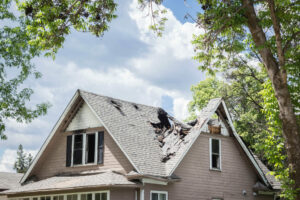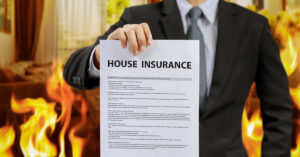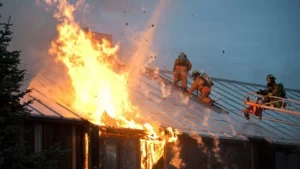Fire insurance is one of the most important things you can do to protect your home or business. Property damage from fires can be serious and have a huge financial and emotional impact. If you have fire insurance, you won’t have to pay for the damage yourself. However, for some people, the price of fire insurance can be too high, leaving them wondering if they can afford the coverage they need. The good news is that you can find cheap fire insurance that still provides you with the peace of mind you need.
Understand the Factors That Affect Fire Insurance Costs
Fire insurance costs vary from person to person. One of the most important things insurance companies look at is where your home is located. If your home or building is in a wildfire-prone area or far from a fire station, your rates may be higher. The building materials you use in your home are also very important. Homes made of fire-resistant materials are generally cheaper to insure than homes made of materials like wood.
The value of your home and its contents also have a big impact on the cost of your insurance. Premiums increase because homes with higher values require more collateral and therefore higher premiums. Insurance companies also look at your credit score and past claims history when calculating your rate. These factors can indicate how likely you are to file a claim in the future. Understanding these factors can help you take steps to lower your rates.
How to Lower Your Fire Insurance Premium
You may not be able to change all of the factors that affect the cost of fire insurance, but there are things you can do to lower your premium. One of the best ways to get a better rate is to make your home more fire-safe. This may mean installing sprinklers, fire alarms, or materials that won’t catch fire during repairs and upgrades.
You can also save big if you bundle fire insurance with other insurance policies from the same company, such as home or auto insurance. Insurance companies like to reward their users for having multiple policies. Another important tip is to compare quotes from different companies. By requesting quotes from multiple insurance companies, you can find the best policy at the best price.
Sometimes, you can get a lower monthly payment by increasing your deductible. However, you should choose a deductible that you can afford to pay if you need to make a claim. Finally, look for special offers. For example, some insurance companies will reduce premiums for people who are older, non-smokers, or have good credit.
Finding the right balance between cost and coverage
It is important to find a fire insurance policy that is not too expensive, but it is also important to make sure that the policy is sufficient to protect you in the event of a fire. If you take out the cheapest insurance on the market, it may not offer you enough protection, leaving you at risk when you need it most. First, look carefully at how much your home is worth and what risks it carries. Carrying less insurance on your home may save you money on your bills, but you could also lose a lot of money if a fire breaks out.
It’s also important to read your policy carefully. It’s important to understand what is and isn’t covered. For example, some policies don’t cover smoke damage or certain high-risk items. If you feel like your policy doesn’t fully protect you, talk to your insurance company about adding additional clauses to make sure you’re fully protected.
Talking to a professional insurance broker can help you find the best balance between price and benefits. Brokers are trained to understand your needs and find a plan that meets your needs without blowing your budget. This can give you peace of mind without putting too much strain on your bank account.
Learn about key strategies
To get cheap home insurance without giving up coverage, you need to plan ahead, do your research, and take action. Understanding the factors that influence price, such as location and product, can help you determine how to improve the situation. You’ll likely save more on your premiums if you take steps like making your home more fire-safe, grouping policies, and getting multiple quotes.
But you should never sacrifice quality service to save money. Instead, you should west. To compensate for the risk, your insurance company may require you to take additional safety measures, such as adding fireproofing materials or water systems.
FAQ
Who should cover me?
The amount of coverage you get depends on the value of your home and its contents. Make sure your insurance provides enough coverage to rebuild or repair your home and replace your belongings.
What is not covered by fire insurance?
Yes, policies have different limits, but some common limits include arson, war damage, and negligence (such as when a homeowner fails to repair a downed electrical wire). Review your policy to make sure you know what is not covered.
Can I change my fire insurance later?
You can usually make changes to your insurance policy at any time, if necessary. This may mean adding more coverage, changing the rates, or adding additional coverage to cover certain risks. Please contact your insurance company for assistance with the change.




